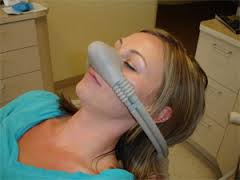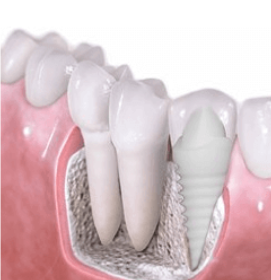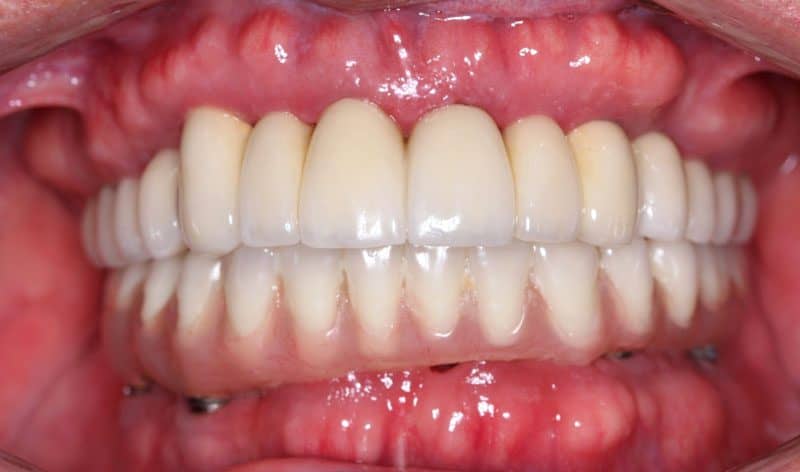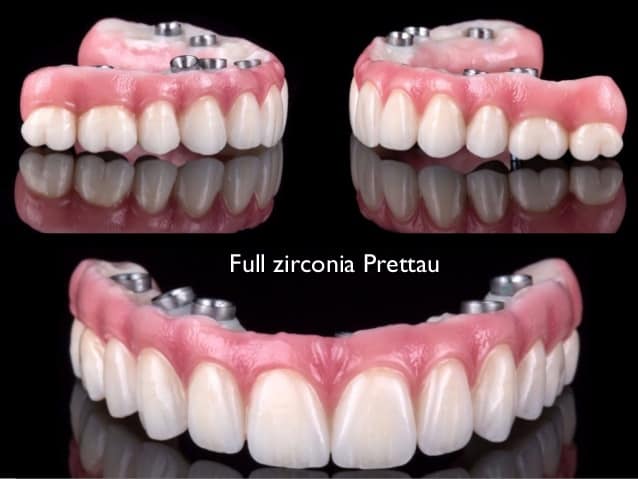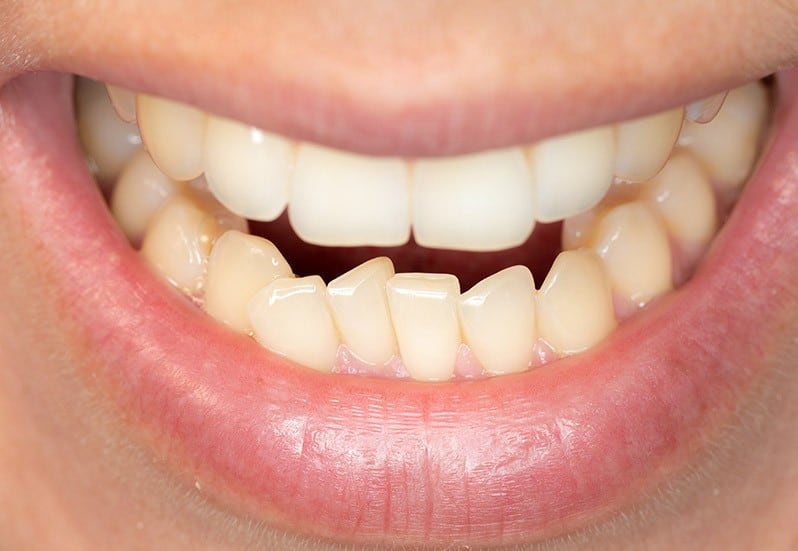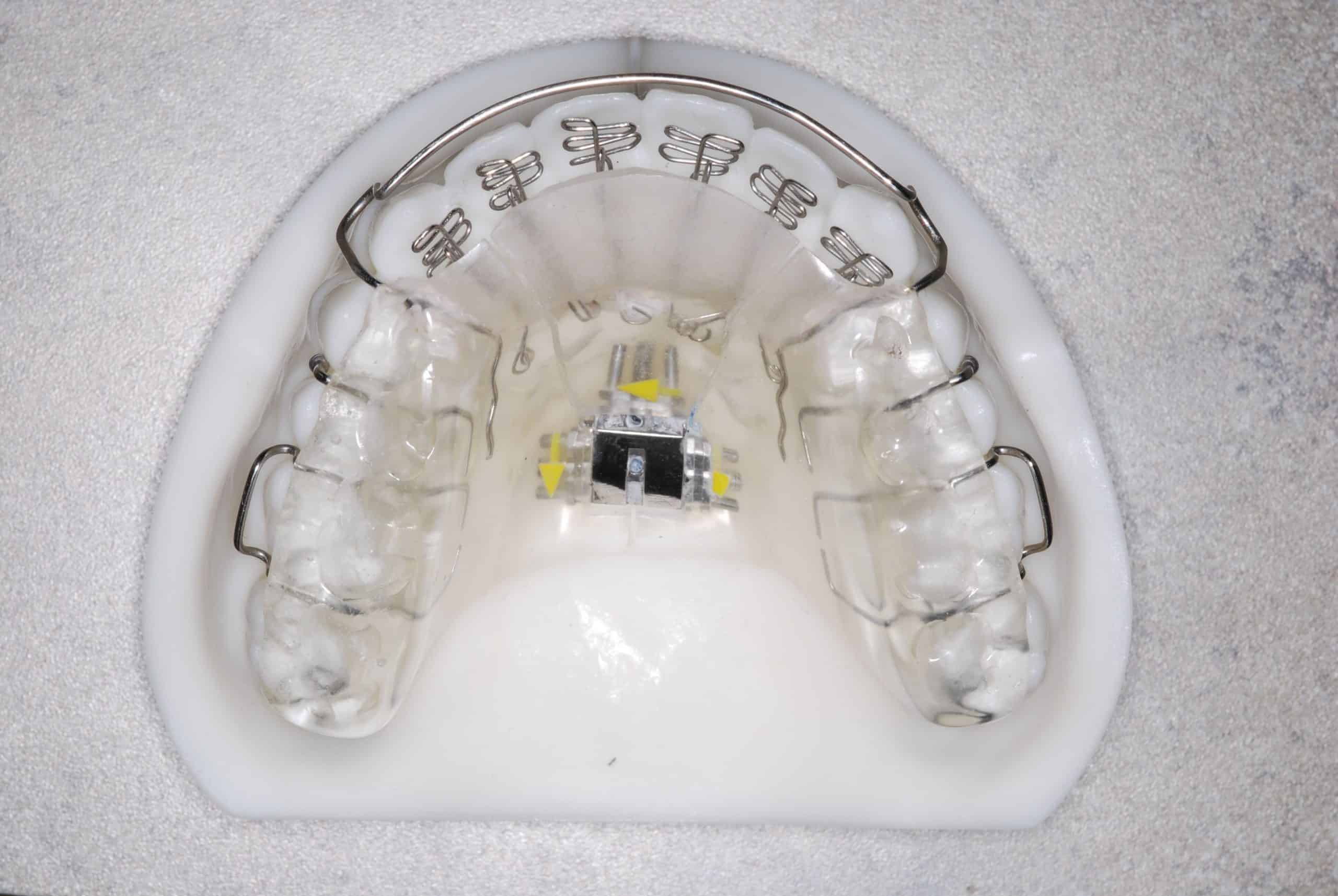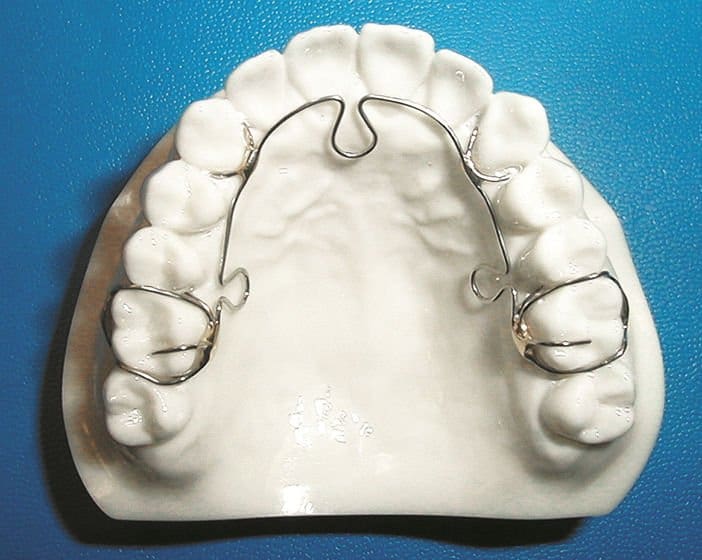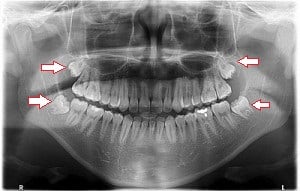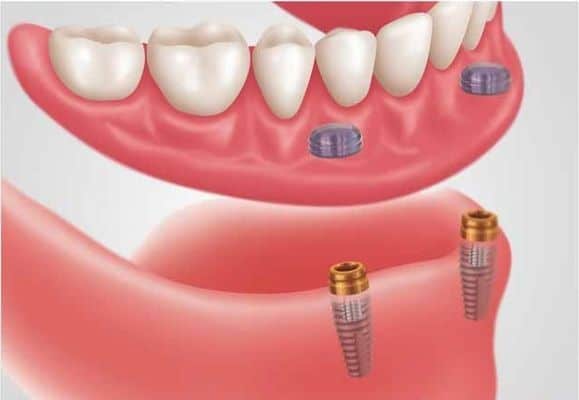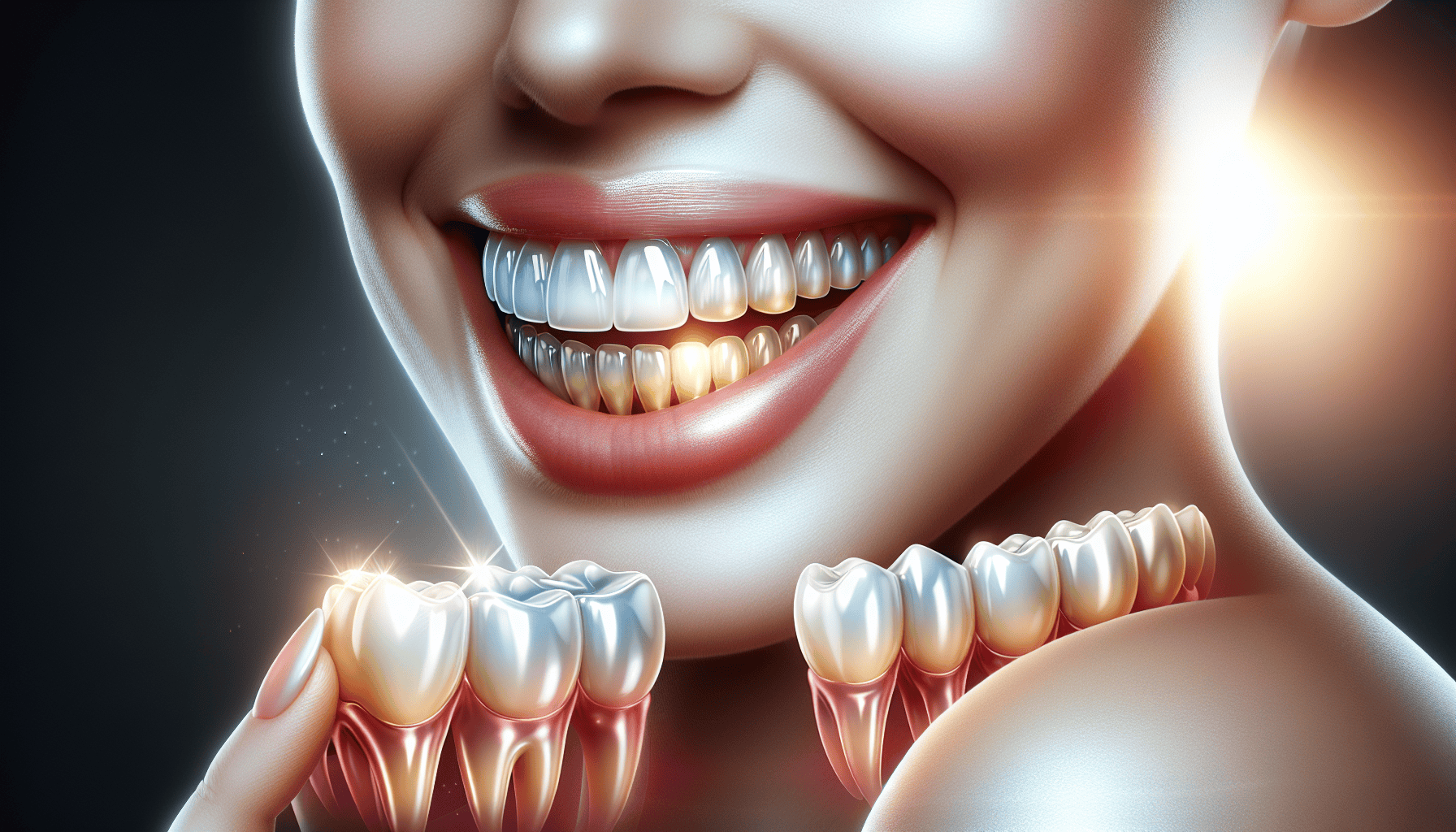IV Sedation Dentistry in Burtonsville Silver Spring MD
What is sedation dentistry? Our dental practice specializes in treating patients who cannot tolerate dental procedures without sedation dentistry. Sedation helps to calm the nervous system and allow the body to focus on healing. Putting the body in a relaxed state is very helpful in the holistic dental practice. Especially for patients with oral infection who need to detox.
Gary Adams DDS is a sedation dentist located in Burtonsville Maryland. Dr Adams can administer calming sedatives to help people with dental anxiety and gagging reflexes get through their dental appointment. Sedation is not just for full mouth implant cases, it can be used for any procedure to keep someone calm and comfortable throughout the procedure.
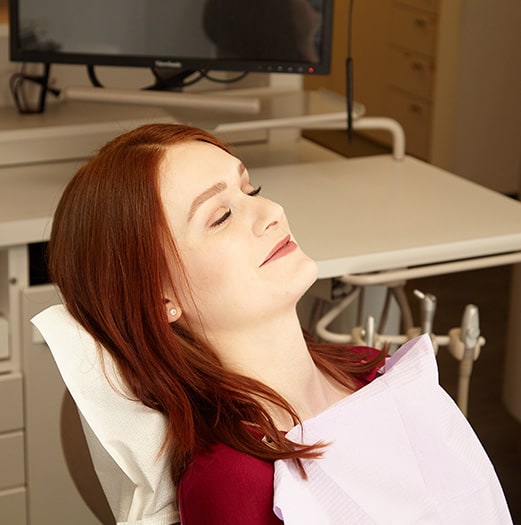
sedation dentist
Don’t Let Fear of the Dentist Stop You
No reason to avoid the dentist because of fear. Sleep through your next appointment. Wake up and all your dental work will be completed. Even dental X-rays and regular cleanings under twilight or full sedation if necessary. Many patients have fear of the dentist and cannot tolerate dental work without getting put to sleep. If pills and laughing gas have not worked for you. If you gag a lot, have severe tooth sensitivity and/or trouble getting numb, we invite you to come in for a complimentary consultation to see what we can do for you today.
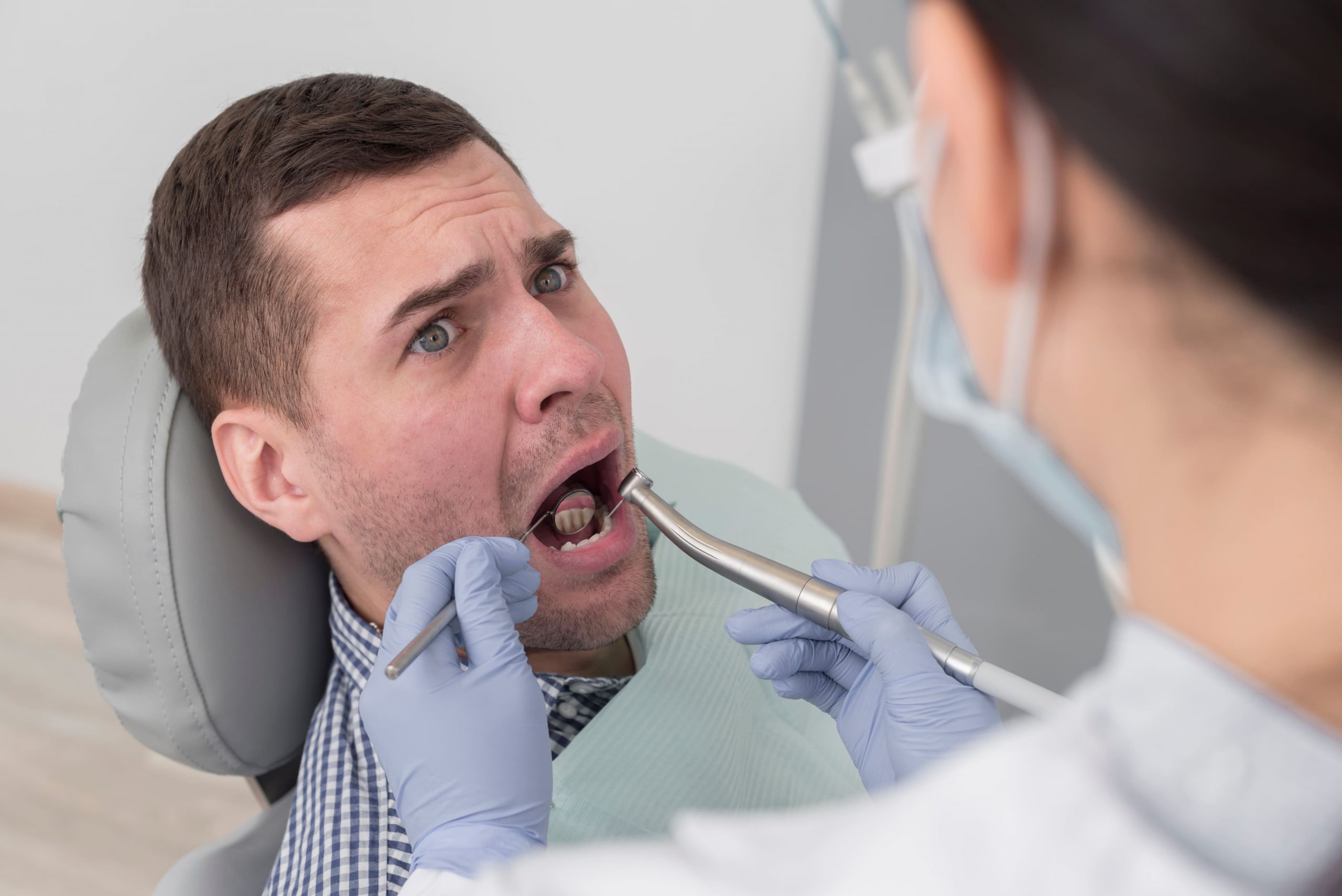
addressing dental issues scaled
Meet Dr. Gary Adams
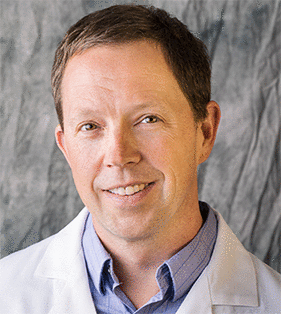
Dr Adams: “It’s amazing how well people with severe dental anxiety do…most say they do not remember a thing…years of teeth neglect was erased in one easy appointment.”
People travel from all over the DC and Baltimore metro areas. We also have patients who travel from across the US and abroad. Most people seek Dr. Adams out because of his unique ability to handle a large range of dental problems including, dental implants, temporomandibular joint dysfunction.
What to expect at your sedation dentistry appointment video:
Sedation Dentistry
Dental anesthesiology can sedate for routine and complex dental procedures. You can be put to sleep for even a simple tooth filling or cleaning if need be? We offer different sedative techniques including full intravenous sedation, twilight and conscious oral sedation. Finding a dentist who sedates can be difficult for routine dental work. Most dentists that sedate are oral surgeons who are doing complex oral and maxillofacial surgery services.
What separates our sedation office from others is that Dr. Adams sedates for routine and complex procedures. So if you need an implant, extraction and a filling or even a cleaning, it can be all be done during one sedation appointment. If you are confused about what level of sedation is best for you, schedule a sedation consultation and we can determine what option is best for you.
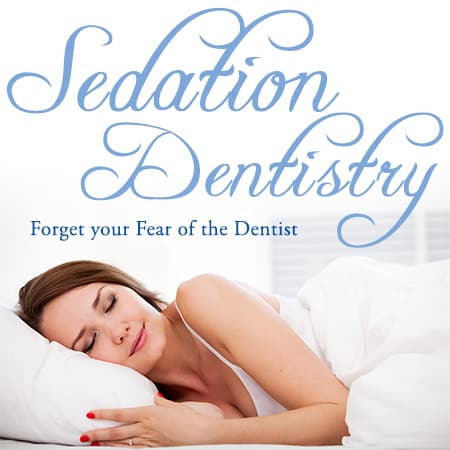
sleep dentist chevy chase md 1
Reasons for Sedation at the Dentist:
- Severe Dental Anxiety
- Bad Gag reflex
- Special Needs
- Lots of dental work needs to be done
- Complex Dental Work
- Difficulty getting numb
- Phobia to dental sounds and smells
- Teeth Sensitivity

sedation dentist chevy chase 2
Is IV Sedation Dentistry Safe?
In Reality, dental work under sedation is likely more safe than dentistry without sedative drugs. When people are fearful of the dentist, they experience higher cortisol and adrenaline levels. These hormonal increases cause elevated heart rate, blood pressure and a general fight or flight response. These systemic challenges can increase the chances of someone having a medical emergency such as heart attack, stroke, asthma attack, allergic reaction and many other medical problems. Also when a patient is more calm and comfortable, it is easier for the dentist to work. The dentist can do high quality work with a calm, still and cooperative patient. It is also less likely to have a patient accident, such as a tongue or cheek getting cut.
Can Any Dentist Put you to Sleep?
No. Sedation is something that requires special training above being a dentist. And an additional license and facility certification. To offer sedation, the dentist needs to be certified by the Maryland Board in the state of MD. There are different levels of sedation including mild, moderate, deep sedation and general anesthesia. Forms of mild anesthesia include laughing gas or a single oral dose of something such as valium. Most Dentists can easily get training for mild sedation. All other levels are normally done with intravenous sedatives and require rigorous training in the areas of medicine, anesthesiology, emergency training and IV sedative drug management.
What procedures can be done under dental anesthesia?
IV Sedatives Used by Dr. Adams for Sedation
- Midazolam
- Fentenyl
- Triazolam
- Diazepam
- Nitrous Oxide
- Oxygen
Sedation Dentistry Benefits:
- Many dental procedures Can be done comfortably in one appointment
- Reduced pain after dental procedure. Dental procedures are fast, smooth and less stress, there is less swelling and pain
- You can sleep through the sounds, smells of the dental office
- No Gagging. Sleep dentistry suppresses your gagging
- Sedation at the dentist will change your life and attitude to being positive about going to the dentist office.
- You will not be embarassed, you will not remember anything
How to administer IV sedation in the Dental Office Safety?
The sedated procedure is operated with state-of-the-art procedures, instruments and sedative drugs appropriate for sedation in the dental office. IV sedative drugs can make treatments not just tolerable, but also comfortable and enjoyable. Patients of all ages feel no discomfort whatsoever during and after treatment.
During your procedure, your vital signs are monitored very closely. IV sedation is the method of choice in our office due to the high level of effectiveness and safety. IV anesthesia can be delivered precisely, quickly and accurately through an IV.
The sedative medicines can also be reversed immediately with the use of other reversal medications at any time. The ability to easily “reverse” sedative drugs is what makes IV sedation so much safer and more precise than oral sedation. It is a lot more difficult to reverse the effects of an oral medication too.
Reversal Drugs used for Dental Sedatives:
- Flumazenil reverses drugs such as valium, triazolam, and other benzodiazepines
- Narcan reverses narcotic drugs including fentanyl
Our sedation staff are also ACLS certified and can handle sedation emergencies.
Can Mercury Fillings be Removed Safely during Sedation?
Any holistic dentistry procedure can be performed under sedation including removal of mercury fillings. It is best to keep the patient calm and comfortable throughout the procedure when removing infections and toxins from the mouth.
During stress and anxiety hormones such as cortisol are released, causing someone to fight the procedure rather healing and detoxification.
IV Sedatives allow a procedure to go quickly, smoothly, with less stress. Patients who are sedated for dentistry report quicker healing times, reduced pain and swelling. Sedation is not only helpful for long holistic dental procedures, but encouraged and recommended.
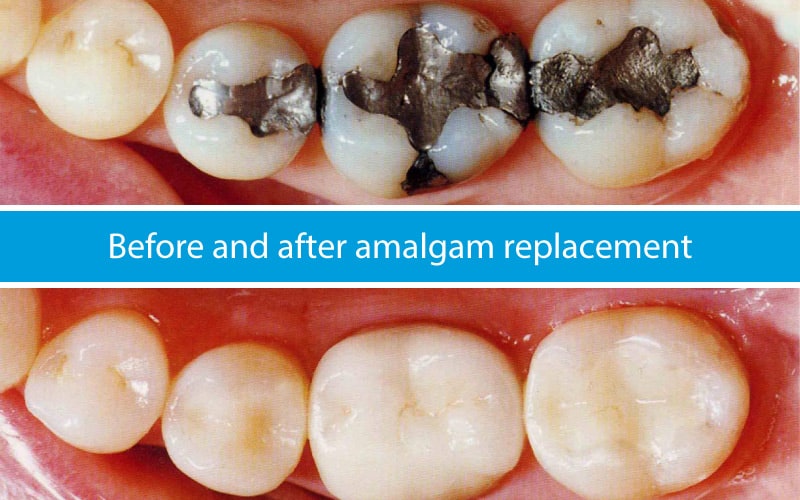
sleep sedation dentist 1
Candidates For Sedative Dentistry:
- High dental, fear, phobia or anxiety
- Prior bad, traumatic dental experiences
- Difficulty getting numb
- Bad gag reflexes
- Very sensitive teeth
- Complicated dental issues that require longer appointments
- Have a fear of needles and shots
- Can’t tolerate the noises, smells and tastes in a dental office
- Are embarrassed about their teeth.
Will I be relaxed?
You will receive just the right amount of sedatives so that you’ll be completely unaware of the treatment, as if you were asleep. Some patients feel like they were put to sleep. Our sedation dentist does a great job of relaxing our patients both with his even and calm demeanor as well as his sleep dentist techniques.
Will I remember anything after the sedation?
At the end of the treatment, you’ll have little or no memory of your visit. Retrograde amnesia is a good side effect achieved by the sedation dentist, Dr. Adams.
Will I be tired and groggy after?
Yes, but you will feel just fine. For your safety, the sedation dentist requires that you have a family member or friend drive you home. You should also not make any big decisions or legal decisions for 24 hours after the procedure.
Who is the ideal candidate?
It’s a fact of life that some people are afraid of going to the dentist. We know—and we understand. But it’s also the case that skipping those regular visits to the dentist can cause far greater tooth problems later on. For such patients, sleep dentistry is often a great option. In the past, sedation was only available for oral surgery, but in our office it is available for all procedures.
Sedation drugs aren’t just for people who are ‘afraid’ of the dentist, however. Many of our patients are busy professionals and parents. Sedation is an increasingly popular option for people who need work done, but who don’t want to chop up their busy schedules to get done large amounts of overdue dental treatment.
Sleep dentists say they are able to get four times as much work done for patients who are comfortable sedated, and in half the time. Sedation is ideal for patients who have extensive dental needs where several dental procedures normally requiring several dental appointments can be done in one appointment. Sedation is also great for severe Dental Fear and Anxiety, patients with strong gag reflexes and people who have difficulty getting numb.
Can any dentist use sedation Drugs?
No. In the state of Maryland, as in most states, sedation dentists must meet stringent criteria mandated by the State’s Board of Dental Examiners. Most dentists certified for IV sedation are oral surgeons.
Dentists who wish to do dental work using sedative drugs, must first pass a special residency program in which they work closely with dental anesthesiologists. The dentist must also pass a rigorous oral exam and inspection of his/her office for IV sedation.
Does dental insurance pay for sedation?
Not the sedation part of the service normally. Insurance will cover dental procedures under sedation the same as if the patient were not sedated.
Our patients sometimes find that the time saved in coming to our office once, instead of coming for multiple visits, makes the extra cost worth it.
Oral Sedation versus Full Sedation Dentistry with IV
Oral sedation is great for patients who need a lower dose of sedation. Typically, patients who take oral sedatives will become drowsy, but will stay awake. Your dentist may give you twilight medication to take about an hour before the procedure.
IV sedation is much quicker, as it is administered through a vein. This allows the sedative dentist to more completely control the level of anesthesia. The effects of IV drugs can also be quickly and easily reversed.
Patients who choose IV anesthesiology at the sedation dentist also typically receive the same local anesthetic they would receive otherwise. Our patients report that being sedated can make a three-hour procedure seem as if it took just five minutes. Most patients will not remember the procedure. With either type of IV sedative technique, we do ask that patients receive a ride to and from their appointment.
Is getting put to sleep painful?
No. You will be sedated and you will likely remember very little of the experience.
Maryland holistic dentist is one of just a few full sedation dentists in Maryland.
Still searching, sedative dentist, sleep dentist or sedation dentist near me? We are happy to be your local sedation dentist.
What is Sedation Dentistry?
The use of a Sedative drug to keep a patient calm throughout a dental procedure. Many patients do not need a sedatives to remain calm during dental appointments.
Do you remember having a traumatic experience in the dentist’s chair that made you afraid of the dentist forever? Statistics show that roughly 15% of Americans suffer from dental anxiety. It is more serious than just a pair of sweaty palms – it’s a paralyzing fear of dentists or dental treatment.
Eventually there comes a point where you will need to cope with your dental phobia. Modern dentistry offers what is called sedation dentistry. By definition, sedation dentistry is the use of pharmacological agents to calm and relax the patient prior to and during a dental appointment. It serves to ease the patients with dental anxiety so that they can continue their routine dental care.
How popular is Anxiety Free Dentistry?
Anxiety Free Dentistry protocols have been used safely for over 30 years with millions of dental procedures. Roughly only 5% of all patients will choose or really need sedation services at some point. Remember though, more than 80% of Americans do not suffer from dental phobia or anxiety, which is why patients may resort to Sleep Dentistry in the first place.
How does Sedation Dentistry work?
- Before beginning any procedures, your medical history will be reviewed and a doctor will explain how sedation and sleep dentistry works.
- Prior to your dental care appointment, you will be able to choose what treatment option you want to undergo. We offer IV Sedation, Oral Sedation and Nitrous Oxide Sedation
- On the day of your appointment, you’ll take a medication that makes you relaxed and comfortable.
- Once the procedure and sedation is about to begin, your vital signs will be monitored very closely.
- Although you are not completely unconscious, many patients sleep through their dental appointment and a few patients even have no memory of their treatment. Many patients claim it is the best sleep they’ve ever had.
- Due to the relaxing effects of both oral and IV medication, you will be required to have a friend or family member bring you to the dental office and take you home following your appointment.
Schedule Consultation


 (301) 421 1996
(301) 421 1996 burtonsvillesmiles@gmail.com
burtonsvillesmiles@gmail.com


